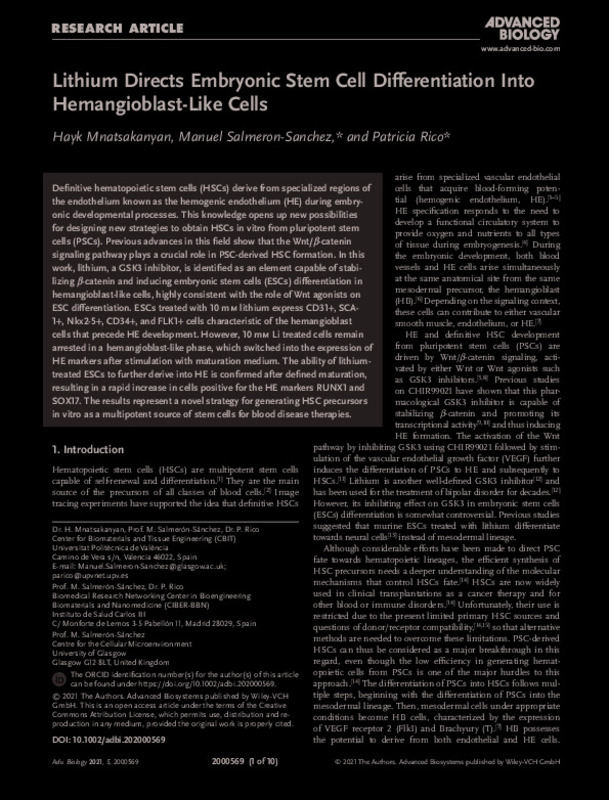JavaScript is disabled for your browser. Some features of this site may not work without it.
Buscar en RiuNet
Listar
Mi cuenta
Estadísticas
Ayuda RiuNet
Admin. UPV
Lithium Directs Embryonic Stem Cell Differentiation Into Hemangioblast-Like Cells
Mostrar el registro completo del ítem
Mnatsakanyan, H.; Salmerón Sánchez, M.; Rico Tortosa, PM. (2021). Lithium Directs Embryonic Stem Cell Differentiation Into Hemangioblast-Like Cells. Advanced Biosystems. 5(8):1-10. https://doi.org/10.1002/adbi.202000569
Por favor, use este identificador para citar o enlazar este ítem: http://hdl.handle.net/10251/184045
Ficheros en el ítem
Metadatos del ítem
| Título: | Lithium Directs Embryonic Stem Cell Differentiation Into Hemangioblast-Like Cells | |
| Autor: | Mnatsakanyan, Hayk | |
| Entidad UPV: |
|
|
| Fecha difusión: |
|
|
| Resumen: |
[EN] Definitive hematopoietic stem cells (HSCs) derive from specialized regions of the endothelium known as the hemogenic endothelium (HE) during embryonic developmental processes. This knowledge opens up new possibilities ...[+]
|
|
| Palabras clave: |
|
|
| Derechos de uso: | Reconocimiento (by) | |
| Fuente: |
|
|
| DOI: |
|
|
| Editorial: |
|
|
| Versión del editor: | https://doi.org/10.1002/adbi.202000569 | |
| Código del Proyecto: |
|
|
| Agradecimientos: |
P.R. acknowledges support from the Spanish Ministry of Science, Innovation, and Universities (RTI2018-096794), and Fondo Europeo de Desarrollo Regional (FEDER). CIBER-BBN was an initiative funded by the VI National R&D&I ...[+]
|
|
| Tipo: |
|









